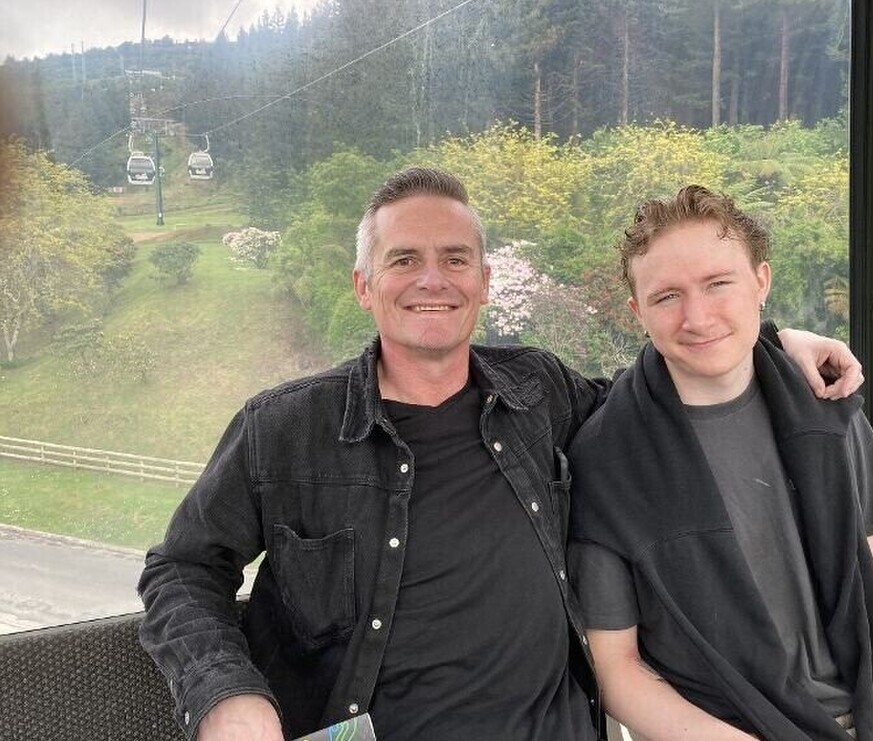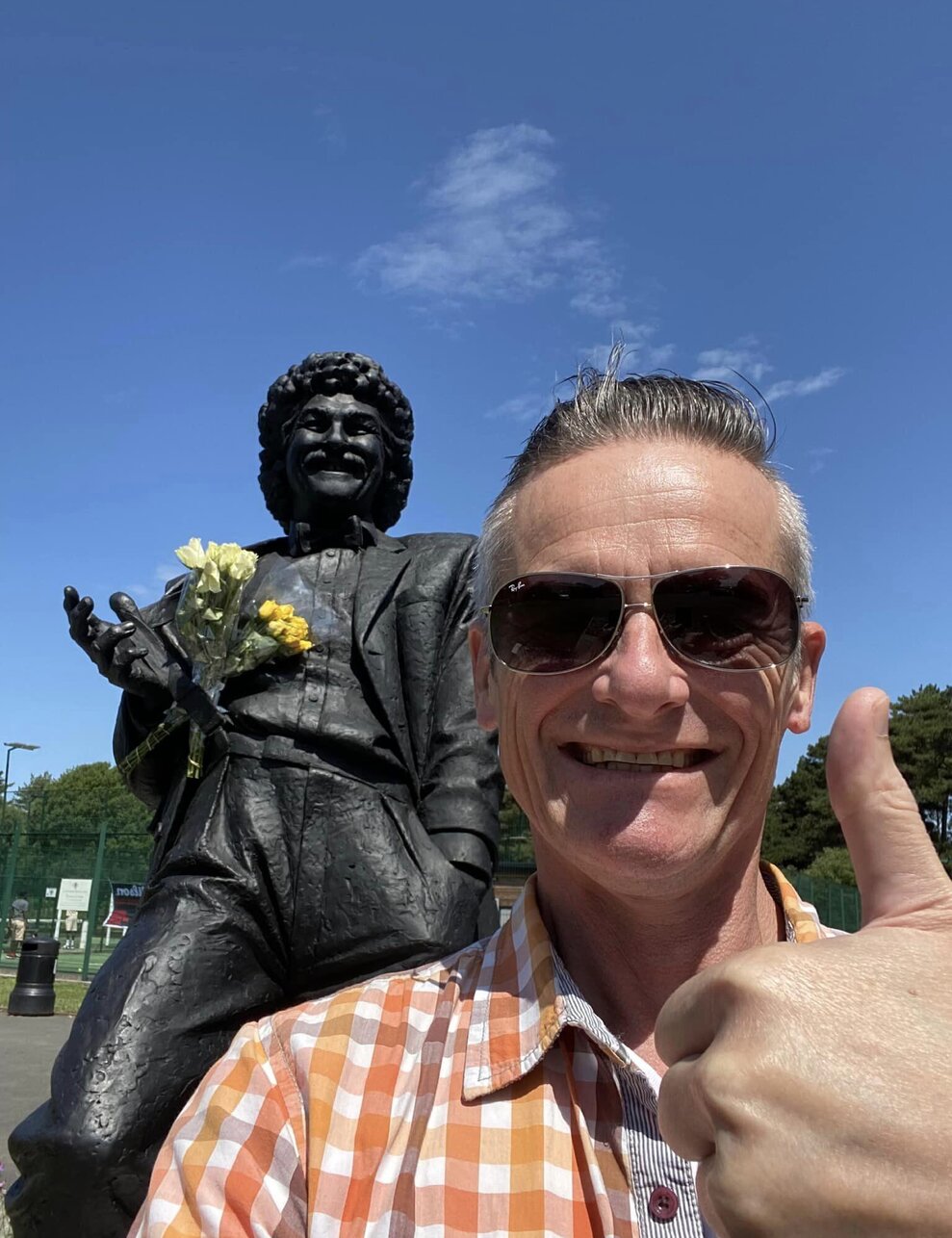Carl's Story
At 49, Carl Sunderland was healthy, a regular gym goer, ex-lifeguard and swimmer and led an active lifestyle.
The severe fatigue he was feeling was ringing alarm bells, but without any other symptoms he thought perhaps he was “just getting old” and feeling the effects of a busy job as well as the added stress of a partner in hospital.
It wasn’t until his 50th birthday when he took his son diving at the Poor Knights Islands that he realised that this wasn’t just normal tiredness. He was on holiday doing something he loved and couldn’t even swim 20 meters - he had to call the dive off. Carl described it as not being able to get enough oxygen in.
They found that he was severely anaemic which explained the fatigue and being unable to breathe but the reason for the anaemia was still unclear.
Carl ended up taking himself to hospital where he had a suspected ulcer, however as there was no pain, it wasn’t adding up. Then a gastroscopy showed tumours. The doctors were puzzled as he had no symptoms and when he was quizzed on changes to his bowel habits, and he recalled that there was 2 to 3 weeks where he had green bowel movements. Carl has since found out that was a result of the tumours bleeding slowly and was the cause of his severe anaemia.
Carl did a bit of online research, saw statistics, and knew the outcomes for stomach cancer weren’t great and the treatment would be grueling. 25 rounds of radiation, 5 weeks of chemotherapy and a gastrectomy (stomach removal) and two years on, Carl is looking at life a whole different way. He has shared his story to show that sometimes symptoms are not blindingly obvious but anything that is prolonged or not normal for you needs to be checked out. Don’t ignore that voice that says “that’s strange.”
Carl has very generously shared his experience post-gastrectomy to help others learn what they can expect, along with some helpful tips he learnt by trial and error, along the way.
What were you told about how stomach cancer and treatment would affect your digestive system?
I was given a generic indication that the treatment would cause nausea (I was given medication) and loss of appetite. Where the communication really fell down was around my surgery. I had a full gastrectomy.
Apart from being told I wouldn’t be able to eat for 5 days, absolutely nothing from the surgical team. After surgery was when communication really fell down.
What support were you given after your surgery and treatment?
In hospital, no one told me anything. After 5 days I was given a liquid meal. This consisted of two fruit juices, a protein shake of some sort, and a jelly. i.e. all foods VERY high in sugar. After 30 minutes, bearing in mind I was having trouble moving, was in extreme pain and attached to two pieces of equipment on wheels, my belly started making a lot of noise. I spent the next hour on the toilet. I thought this was my new norm. No one told me anything different. And so, it went on for the next 10 days.
Just before I went home, I was given a fact sheet on gastric band surgery advice from the dietician, “as it was similar and we don’t have any information for total stomach removal”.
This told me I should avoid foods high in sugar or fat as that may cause ‘dumping’. It is what is says on the tin. If you do, after 30-40 minutes you will experience severe diarrhea.
Yet, my upper gastro ‘specialist’ had asked for a meal high in sugar. Awesome.
I was also given basic instructions to eat small meals and gradually build that up. I think I’d already worked that one out for myself.
How did you go about finding support yourself?
I lost 14kg while in hospital. From 92kg to 78kg. I lost a further 10kg over the next 6 months. By then I was eating normally.
I was told by all medical professionals that this was normal, and I’d soon start to put some weight back on. I didn’t.
After another year I started to lose more weight, even though I was eating a lot. Way more than I did before surgery. I went down to 64kg. This didn’t seem right. My GP had no idea, so I insisted on being referred to a nutritionist.
After our consult, I had fecal tests done. It showed a very high fat content. So, she did some detective work as to why I obviously wasn’t absorbing fats (and proteins) from my food. I wasn’t absorbing the nutrients I needed. Hence why I was losing weight.
In very layman’s terms, she told me that when the stomach welcomes food, it sends a message to the pancreas to release enzymes into the gut which absorb fats and proteins from the food about to arrive.
No stomach. No message to the pancreas. No enzymes. No absorption.
Patients who have had pancreatic cancer and/or surgery experience this. They are put on PERT (Pancreatic Enzyme Replacement Therapy), brand name CREON. You take capsules every time you eat basically. Forever.
After a brief trial with no real gains, and a bit more detective work, she realised that capsules need stomach acid to melt the outer shell, so ever since I open the capsules before swallowing.
A year on, I’m now 73kg. My goal is 80kg. If I get there, I’ll be happy.
What advice do you have for other stomach cancer patients?
Avoid large amounts of sugar and fat. You’ll find out soon enough if you don’t. This doesn’t mean you avoid sugar and fat altogether, just don’t eat a whole KFC bucket or tub of ice cream.
Eat as much as you can. You’ll find it a lot easier to lose weight than put it on. Switch back to the high calorie stuff – full fat milk, butter, lots of protein and carbs.
Don’t drink too much alcohol. You’ll find out you can’t anyway as you have no stomach, so your gut absorbs the alcohol straight away. You become a very cheap date.
Monitor your weight. If you don’t have scales, use your clothes as an indicator.
If you don’t start to gain weight 6-12 months after surgery, go see your GP. They may not know why.
Insist on seeing a nutritionist. There should be one at your outpatient clinic.
Get your poo tested. Not fun but the only way you’ll get an answer.
Make sure you keep monitoring yourself. If anything changes, it’s back to your GP.

